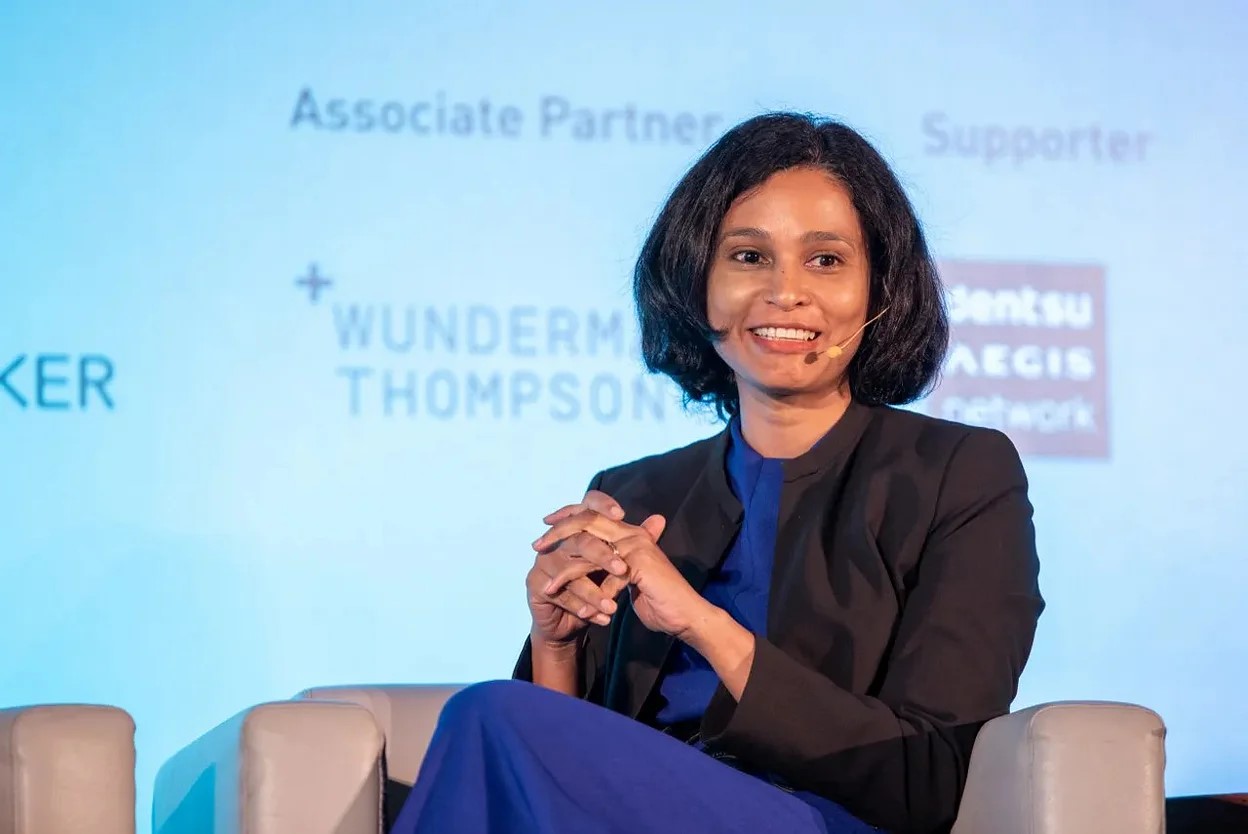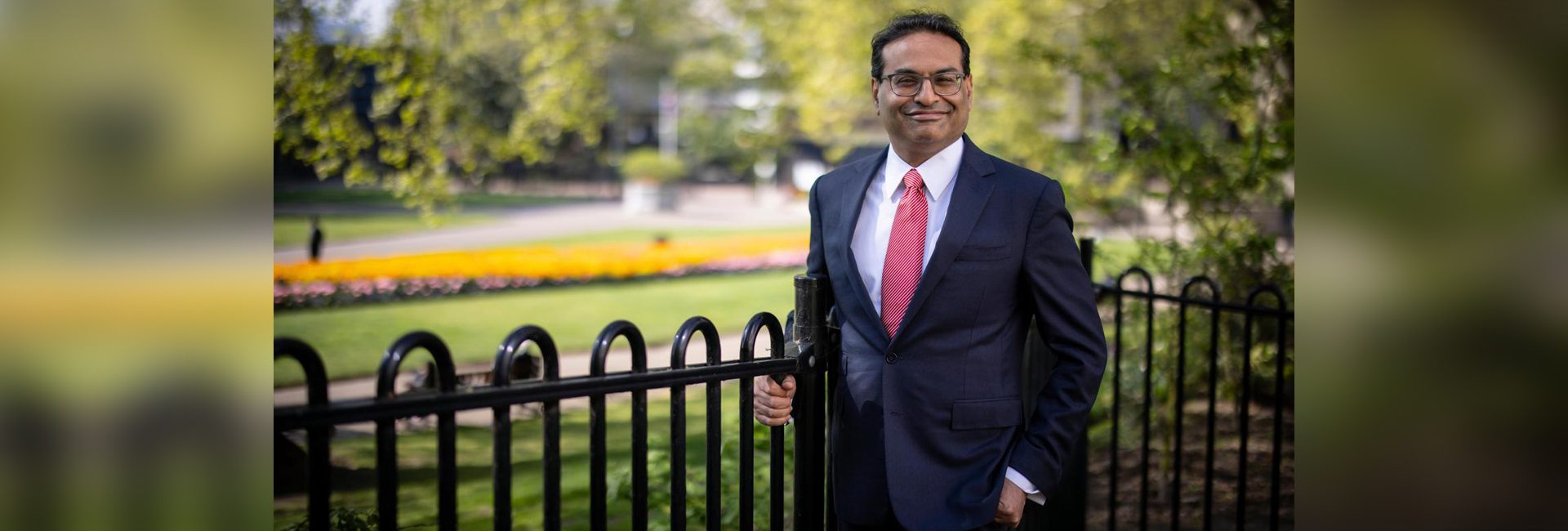(August 30, 2024) In November 2022, as India began driving tougher regulatory policies for social media companies, Sandhya Devanathan was appointed Vice President Meta India. Only two weeks prior, the former VP, Ajit Mohan, had resigned from his post, causing a stir. Sandhya has a proven track record of scaling businesses, building exceptional and inclusive teams, driving product innovation and building strong partnerships,” Meta’s Chief Business Officer Marne Levine said, commenting on the appointment. This year, she was named one of the Most Powerful Women in Business 2024 by Fortune Magazine, and brings 22 years of experience in banking, payments and technology.
Within one year of her appointment, Meta saw a 16% increase in global revenue, and a 69% rise in net income. AI, messaging and creator empowerment have been the focus areas for Meta in the last year. “Meta and its AI suite of products can turbocharge this transformation,” Devanathan told Fortune India.
Who is Sandhya Devanathan
Devanathan graduated with a BTech degree from the Andhra University College of Engineering, Vishakhapatnam, in 1998, completed her MBA at the Faculty of Management Studies and attended a course in leadership from Said Business School, Oxford University. She began her career in 2000, as Webmaster & Product Manager, Citibank Online, e-Business.

Sandhya Devanathan, Vice President, Meta India
With an international career spanning over two decades, Sandhya Devanathan doesn’t come with the usual set of tech credentials. Instead, the graduate from the Faculty of Management Studies in New Delhi, Devanathan pivoted from banking to technology in 2015, after having spent nearly a decade at Citi and another six years with Standard Chartered Bank. In 2016, she joined Meta, going on to play a key role in building its presence in Singapore and Vietnam, apart from working on the company’s e-commerce initiatives in South East Asia.
Teething troubles
She calls the move one of the hardest things she’s ever done, in terms of learning how to adapt. The strict hierarchies of the banking sector gave way to a more egalitarian, empowered atmosphere, where the emphasis lay on having a “shared vision, purpose and sense of community,” she wrote, in a 2020 blog post for Meta Careers. “When it came to banking, I knew the industry really well. I knew about fintech, but Meta and the digital consumer tech landscape were brand new to me. I faced a steep learning curve managing teams that function very differently from traditional companies.”
In 2020, Devanathan moved to Indonesia, where she headed Meta’s gaming vertical in the A-Pac region and is the global lead for Play Forward, Meta’s bid to improve diversity in gaming. Soon afterwards, the pandemic hit and the job market, Devanathan recalls, was transformed. People started onboarding remotely and she had to come to terms with the process, on being unable to establish an in-person rapport with teammates and managers.

Leading in a new world
“Leading through change must start from a place of empathy,” she wrote. “Everyone is going through something. Leaders must also have the humility to understand that we are constantly in learning mode because there is so much change happening around us.” Reviving the old sense of light-hearted togetherness, she realised, was key, now that there were no more water-cooler gatherings and coffee-break tete-a-tetes.
Skills in demand today
The ability to deal with ambiguity, Devanathan believes, is key. Independence and the ability to adjust to change can make all the difference. Communication and collaboration, she writes, are critical, more so as people work remotely and don’t often meet in person. The third skill in Devanathan’s book is resilience. Variables are infinite, from employees stepping back to deal with personal challenges, to the collapse of economies. “You live in markets in Asia that are vibrant but also somewhat volatile, so having resilience is very important.”
An analytical mind that can strategise and plan in an uncertain world is an essential hard skill to be at a company like Meta. “We look for people who are able to set a strong strategy but setting strategy is useless if you can’t break it down into what needs to be done today and what needs to play out longer term.”
Troubled waters
Devanathan takes over Meta India at a stormy time in the company’s India story. With the current administration tightening regulations for big tech, there is lots to navigate. The company is pulling out all the stops to woo Indian developers and creative talent and pledged $1 million for an extended reality fellowship programme in India.
Meta’s Chief Business Officer, Nick Clegg has said that the revised version of the Digital Personal Data Protection Bill is “really promising.” Clegg noted that India is on its way to becoming a digital superpower. India is a key market for Meta India, with over half a billion Indians using its services, forming one of the company’s largest markets.
In this atmosphere, Devanathan’s priorities will be on bringing business and revenue priorities to partners and clients.
- Follow Sandhya Devanathan on LinkedIn



